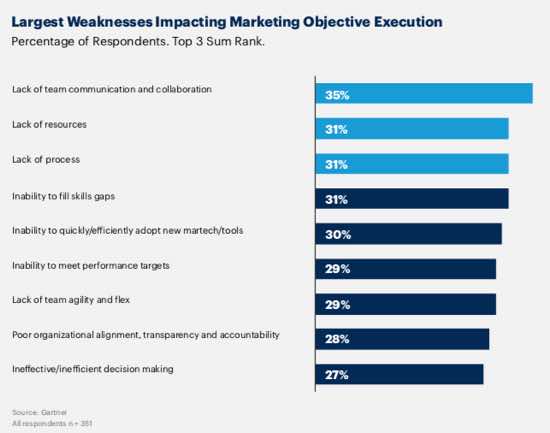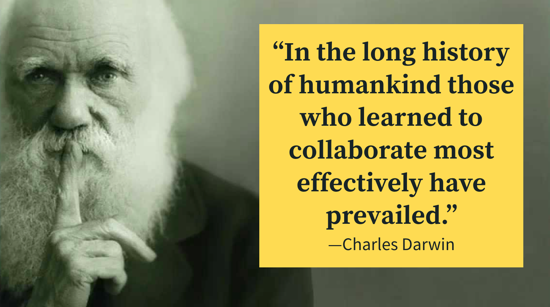Collaboration is great on paper but difficult in practice. It’s also critical for modern marketing leaders—within their department and beyond. Why is it so important? Why is it so difficult? And, most importantly, how can you and your team succeed at it? Let’s take a moment to pause and reflect.
- The marketing collaboration challenge has two layers. The first is about working together within the department, which a recent Gartner survey identified as the single biggest barrier to meeting team objectives.
- Long-standing issues here have been exacerbated by the growing size and complexity of internal teams. The same Gartner research found that two thirds of brands are actively bringing more functions in-house. It’s a case of more people, more problems.
- The second layer of the marketing collaboration challenge is inter-departmental. Research by Workfront found, alarmingly, that “98% of marketers experience some kind of conflict with other departments, groups, and teams.”
- This at a time when, as Matt Preschern argues, leading cross-department change is more important than ever for CMOs.
- The problem is real and the stakes are high. So why is this stuff so damn hard? Film director Chris Williams has a theory: a truly collaborative working environment actually “fights human nature”. It runs counter to deep internal wiring that drives most of us to seek affirmation and defend our interests.
- In her current HBR cover story, Francesca Gino urges leaders to tackle these deeply engrained obstacles by taking what she calls a “psychological approach”. And making a commitment to deep training. In her view, collaboration isn’t a value. It’s a skill. It may run counter to the way most of us naturally think, but it can be taught.
- This collection of tips from Wikihow doesn’t go as deep as Gino’s advice. But the breadth is impressive and some of the suggestions are great. Our favourite: assume positive intent.
- Our own Peter Petralia has a few tips of his own, with a specific focus on remote teams collaborating across different cities and time zones.
- For the last word on the subject, we turn to Charles Darwin, who reminds us that collaboration has always been worth the effort, despite the difficulty.



